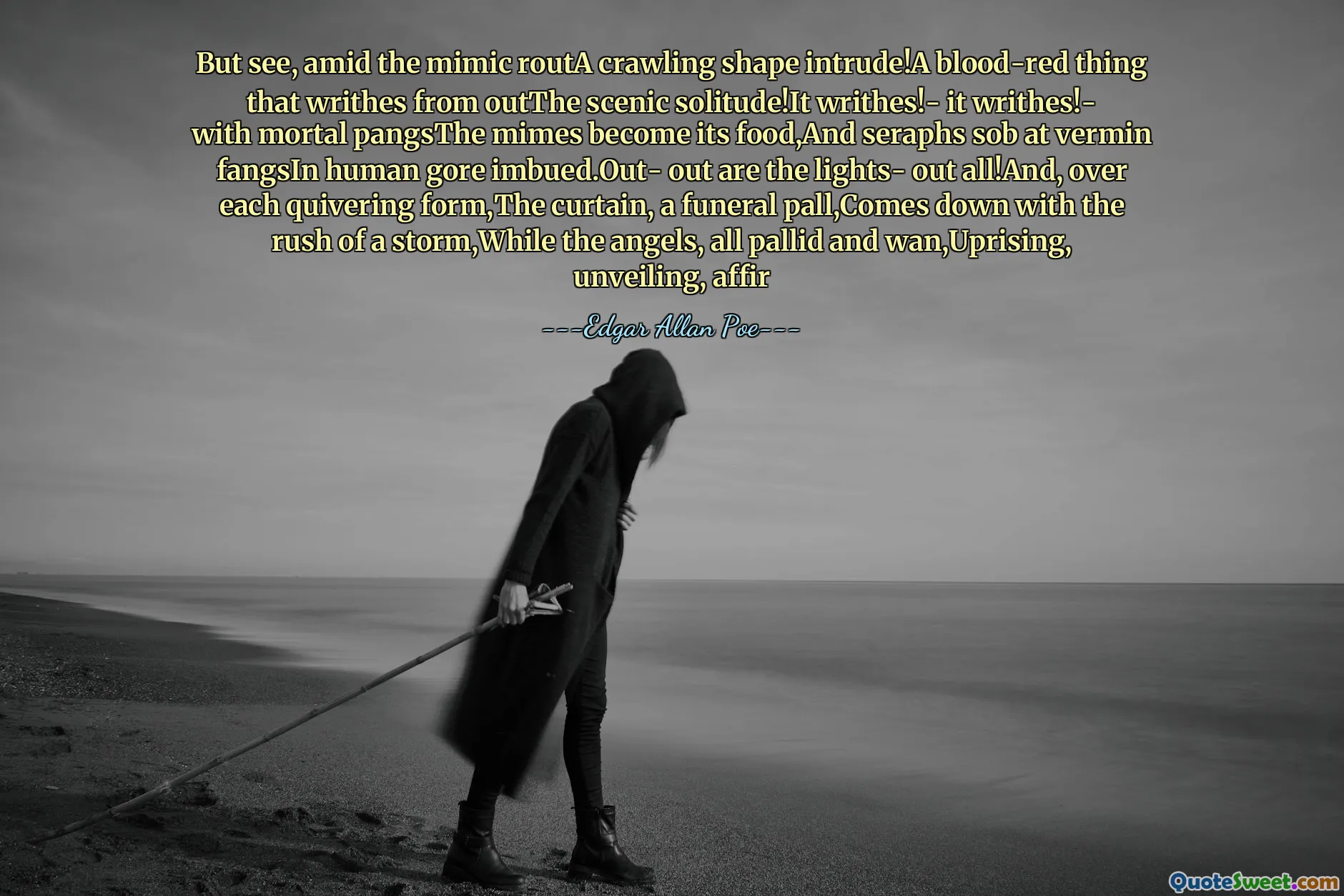
But see, amid the mimic routA crawling shape intrude!A blood-red thing that writhes from outThe scenic solitude!It writhes!- it writhes!- with mortal pangsThe mimes become its food,And seraphs sob at vermin fangsIn human gore imbued.Out- out are the lights- out all!And, over each quivering form,The curtain, a funeral pall,Comes down with the rush of a storm,While the angels, all pallid and wan,Uprising, unveiling, affir
In this excerpt by Edgar Allan Poe, the imagery evokes a scene of chaos and despair, where a monstrous entity disrupts a theatrical performance. It describes a horrific shape that emerges from solitude, bringing with it imagery of suffering and grotesque consumption. The mimes, representing the performers, are consumed by this red creature, highlighting the mortal danger encroaching on their art. The transition from a vibrant performance to a terrifying reality showcases the thin veil between life and death.
The passage culminates in a dramatic conclusion where all lights are extinguished, symbolizing the finality of death. The imagery of a funeral pall descending reinforces the sense of loss and despair. The once lively angels now appear weak and disheartened, revealing a stark contrast to the earlier performance. Poe's work intricately blends themes of mortality and the macabre, showcasing how the beauty of art confronts the horrors of existence, leaving a lasting impact on the audience.





